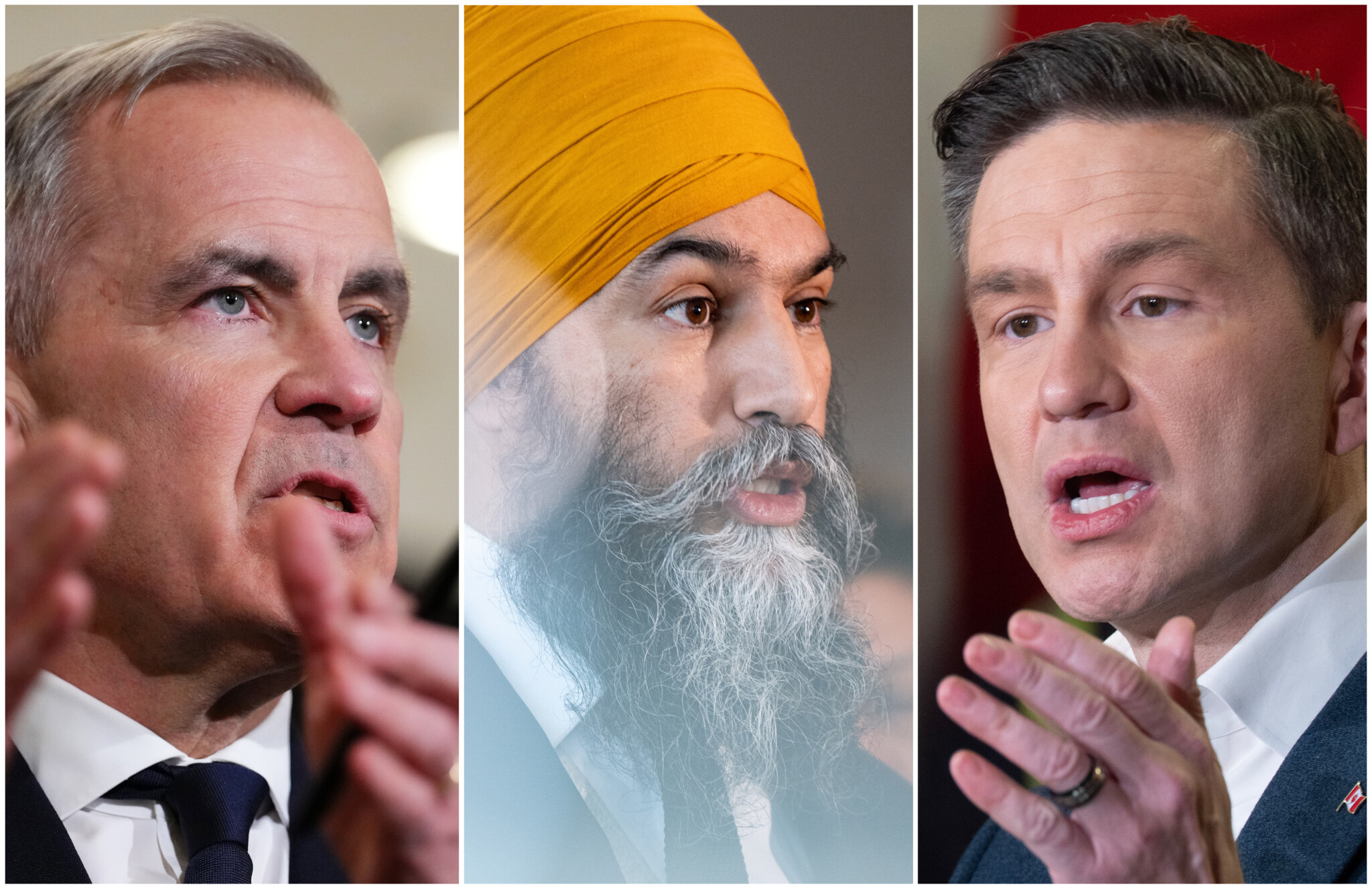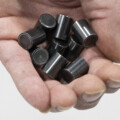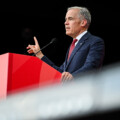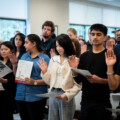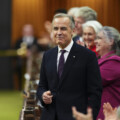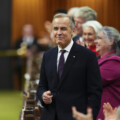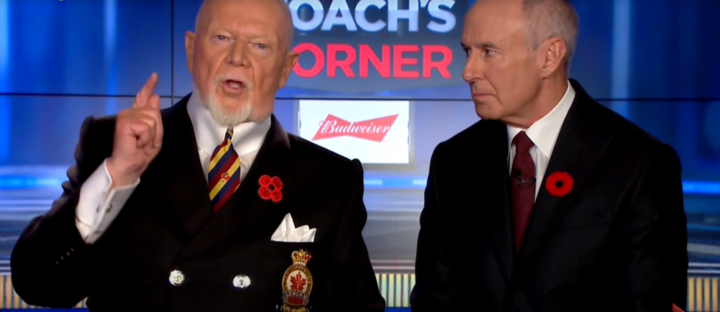Last night was the first of the two government-organized and sanctioned debates that Canadians will be treated to ahead of the April 28th federal election.
I had the pleasure of attending the French-language debate in person, on behalf of The Hub, as accredited media.
I’ve arrived at the Maison de Radio Canada in Montreal where the leaders debate will be taking place. And I’m thrilled to report that @TheHubCanada got accreditation!! pic.twitter.com/pecvWZXoYo
— Élie Cantin-Nantel (@elie_mcn) April 16, 2025
While there were no knockout punches in Montreal, it’s worth diving deep into how each leader performed.
Pierre Poilievre: Good French and a good performance
Conservatives have not always benefited from French debates.
It was during a 2019 French debate hosted by TVA Nouvelles that Andrew Scheer struggled to answer a question on abortion, contributing to a wave of negativity that followed his campaign. And it was during the 2021 French debate that Erin O’Toole was questioned on guns and flip-flopped on his position, angering many Conservatives while keeping Canadians who oppose firearms skeptical.
Last night, Poilievre had to make sure he didn’t walk into a trap—and he succeeded.
He spoke decent, clear French and projected confidence in his positions.
He made a strong case for new leadership in the face of Trump, putting the blame on the Liberals for the vulnerability Canada faces today.
“[T]he weakness in our country right now is threatening our unity,” he told Carney. “Your Liberal government, for the past 10 years, has had the worst record on immigration, the worst record on housing, the worst record on inflation, the worst record on crime. Are you not ashamed to ask Canadians for a fourth term?”
Poilievre explained his positions using statistics and examples. He argued that Canadian families are spending $1,400 per year on government consultants; that Canadian natural gas could help greatly reduce global emissions; that a high percentage of Indigenous leaders supported the Northern Gateway pipeline.
He did not seem angry, and even smiled and made jokes.
Overall, it was a good night for the Conservative leader.
Mark Carney: Mediocre French and a mediocre performance
Liberal Leader Mark Carney’s French and his overall performance were mediocre.Don’t just take it from me, a column in French newspaper La Presse proclaimed that “Mr. Carney’s French hasn’t really improved since the start of the election campaign. He still finds it difficult to explain his position clearly when it is the least bit complicated, which would remain a problem if he were to be confirmed as Prime Minister.” As a native French speaker, there were several moments when I struggled to understand what he was trying to say.
The fact that he lacks charisma in both official languages didn’t help.
His answers on housing and Justin Trudeau’s record left a lot to be desired.
On housing prices, which have doubled under his party’s watch, Carney gave an emotionless response about a middle-class tax cut that would save Canadian families $255 and social services like dental care. On a $1.5 million home requiring a downpayment of $300,000, one wonders how $255 and dental care will help.
To his credit, he also talked about removing taxes on homes for first-time buyers and his promise to have a government-led homebuilding plan, but his non-enthusiastic tone made it seem as if it wasn’t a priority for the millionaire banker.
After the debate, Carney was asked whether he thought Trudeau had been a good prime minister. He said yes, which to me casts doubt on the notion that he represents real change.
“Justin Trudeau and his previous administration made a number of contributions to this country… We share the same values in terms of solidarity, taking care of one another, the emphasis of reconciliation, emphasis on the equality of all Canadians and building a better country,” he said.
He added, however, that he puts “much more emphasis” on growing the economy. The problem with Trudeau was never the emphasis—it was the follow-through. It remains to be seen if the same might be true of Carney.
Carney’s biggest gift is Trump’s tariffs. Before they were announced, the Liberals were staring down a historic defeat. Now, a majority win is a real possibility.
Carney capitalized on that last night, claiming that the tariffs are “the worst crisis of our life,” and said the Canada-U.S. relationship had fundamentally changed. While the situation is certainly serious, it’s worth questioning that claim. What about the COVID-19 pandemic, which killed over 60,000 Canadians? Or the October Crisis?
For Carney, it’s clear the tariff issue needs to remain the central narrative.
While mediocre, it remains to be seen whether his performance will impact his standing in the polls, given that many Quebecers appear set on supporting him in spite of his French and ties to the Trudeau government.
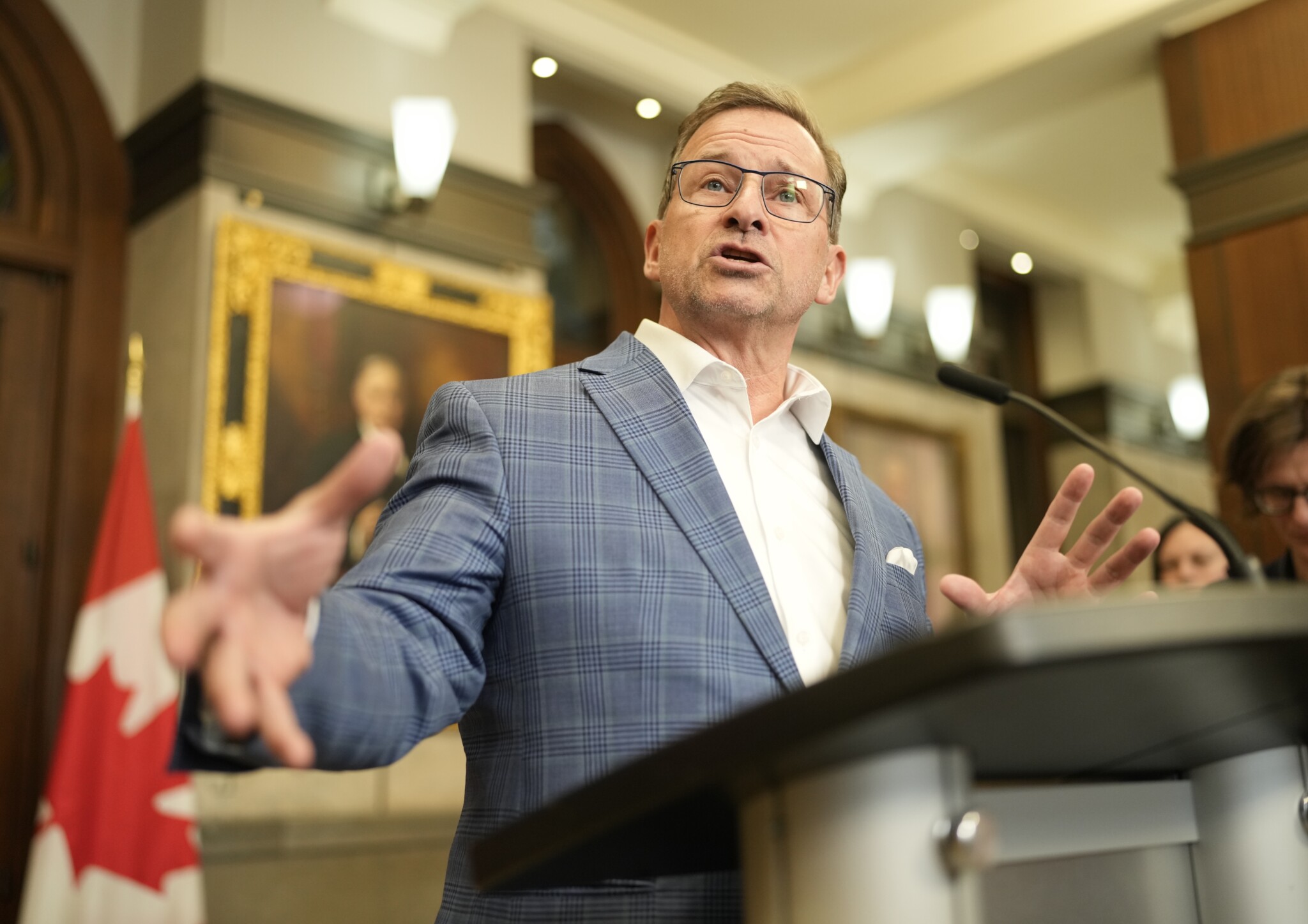
Bloc Quebecois Leader Yves-Francois Blanchet holds a news conference in Ottawa on Monday, March 10, 2025. Adrian Wyld/The Canadian Press.
Yves Francois Blanchet: His shine is wearing off
Yves-François Blanchet is a great communicator. I remember being impressed with his performance in the 2019 and 2021 leaders’ debates.
In 2019, Blanchet managed to save the Bloc Québécois from near-annihilation. But in 2025, two elections later, the shine is wearing off.
First of all, the political dynamics have changed. In 2019, a major concern for Quebecers was Bill 21 (the banning of religious symbols for civil servants legislation), as Trudeau hinted he might challenge the highly popular law in court. Blanchet was the federal leader who vowed to defend it.
In 2021, Quebecers, satisfied with the Bloc’s performance, re-elected their MPs.
But now, in the face of Trump’s tariffs and annexation remarks, which seem to have sparked an appetite for a majority government to face off against him, and with a growing sense of Canadian patriotism, including in Quebec, Blanchet faces new challenges.
While he was in sync with much of Quebec in 2019 and 2021, that may no longer be true.
He is running on sovereignty while Quebecers are looking for unity and patriotism. He is skeptical of tax cuts during a time of growing unaffordability. And he’s against pipelines, despite polls showing 60 percent of Quebecers support them.
Blanchet had one clear case to make tonight: that the next government should be a minority with him holding the balance of power.
He was asked about that and gave a decent answer, but he failed to repeat or emphasize that message throughout the debate.
Overall, it was not a strong night for him.
Jagmeet Singh: Same champagne socialism
Like Blanchet, this is Jagmeet Singh’s third election.
And he continues to offer the same talking points, the same agenda, and the same brand of champagne socialism that an overwhelming majority of Canadians have already rejected twice.
Throughout the night, Singh decried income inequality and the rich, denounced inaction on climate change, criticized the United States, and blamed real estate investors for the lack of affordable housing.
Yet this is the same man who owns two Rolex watches, wears bespoke suits, and carries a Versace bag. This is the same man who drove a BMW and who’s been seen getting around Ottawa in a Maserati. The same man who flies business class, which has a carbon footprint greater than economy-class seats. This is the same man whose family has purchased an investment property. And this is the same man who shops at Whole Foods, a high-end grocery store (I saw him shopping there myself). He also took aim at the Liberals, the same Liberals he voted to keep in power.
He also took swipes at the Conservatives and the Bloc Québécois.
That decision was strange.
The existential threat to the NDP comes from progressive voters drifting toward the Liberals. His focus should have been on Carney. It wasn’t.
Like Blanchet, Singh needed to make the case for a minority government.
This may very well be his last election as NDP leader, especially if he loses his race in Burnaby Central, which the polling aggregator 338Canada says he is on track to do.
Tonight, Canadians will be treated to round two of the leaders’ debates, this time in English, where Poilievre and Carney will be able to debate in their native tongues, while Singh and Blanchet will merely serve to get in the way of the two-person debate Canadians really deserve.
Travel expenses for The Hub’s election coverage are made possible by the Public Policy Forum, the Rideau Hall Foundation, and the Michener Awards Foundation.
